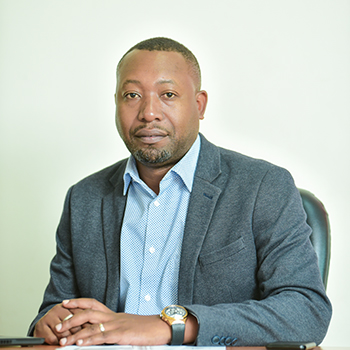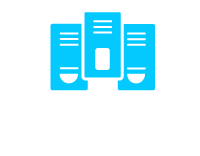Raxio Data Centre has become the First Tier III Design Certified Data Centre in Uganda. In this Deep Dive, James Byaruhanga, General Manager talks about his most memorable achievement in the data centre industry and what he believes are the industry’s major areas of investment.

1. What would you describe as your most memorable achievement in the data centre industry?
There have been many, but I will pick out the most recent which was when Raxio Data Centre officially became the First Tier III Design Certified Data Centre in Uganda after receiving the Uptime Institute Tier III Certification. This was huge, not only for us, since it demonstrated our commitment to achieve the highest global standards of modern data centres, but also for Uganda because this will spur increased development for Uganda and the region, as well as attract international players who can now collocate in Uganda.
2. What first made you think of a career in technology/data centres?
My interest in technology was piqued by the beauty of a connected world; as you know, technology is integral to the success of so many different things and I wanted to be at the intersection of this. Fortunately, I have been able to travel widely, work with several regional players in the Telco Industry and get involved in unique projects, such as Submarine cable systems, Optical Fibre Rollouts, and Internet backbone networks in the region.
My interest in data centres was driven by my interest in the accelerated growth of the African content. I noticed that, while there was rapid economic growth in Sub-Saharan Africa, the latest data centre facilities were missing, despite being key to the success of so many industries with regards to providing data storage, backup and recovery, data management and networking. Data centres are the heartbeat of the Internet revolution; they provide the core foundation of the Internet Eco system.
The technology and data centre industries are among the most challenging, inspiring, and rewarding industries one can work in; in Africa – and in Uganda especially – it is growing and evolving at a rapid pace and it will only get more interesting.
3. What style of management philosophy do you employ with your current position?
I believe in the power of teamwork underpinned by a high level of personal responsibility. We are at the tail end of a massive project to build the first state-of-the-art Tier III, carrier-neutral data centre in Uganda that will house up to 400 racks, delivering 1.5 MW of IT power at final phase. Co-ordinating a project team made up of over 10 specialist teams (consultants and contractors) working across multiple countries in different time zones in no mean feat – especially given that the total project workforce is upwards of 200 people. With so many moving parts – from construction to operations, procurement to logistics and marketing to sales – one needs a management style that relies on collaboration and co-ordination. Furthermore, with such an ambitious project – teamwork is the only thing that will make the dream work!
4. What do you think is the current hot talking point within the data centre space?
From a regional point of view, I believe it is the growth of data centres in Africa, which is forecasted to grow between 50% and 80% within the next four years – with a market size expected to cross $3 billion by 2025. Driven by a massive digitisation of African economies, there have been rapid and massive investments from major cloud service providers and content delivery networks who will all need carrier neutral data centres. This is great for Uganda, which is in the heart of the “Savannah Valley,” and the African region as these investments trigger job creation, diversified services in terms of fibre carriers and in turn lower the cost of doing business in Africa.
5. How do you deal with stress and unwind outside the office?
I love spending time with my family & friends, listening to music, cooking, brainstorming formally and informally. However, with what is going on around us, socializing has taken a back seat and has been replaced with farming. I believe that life is for living, we only have one shot at this, and we need to get it right!
6. What do you currently identify as the major areas of investment in your industry?
We are seeing massive investment in cybersecurity; South Africa, Nigeria and Kenya have seen the biggest increases in cybercrime and this is slowly creeping into Uganda. Companies are taking mitigation measures to counter the ever-evolving social engineering attacks. Secondly, we are seeing investment in network connectivity to address the need for more capacity in the Edge and core networks. This has been driven by a number of factors, including the increase in digital activity driven by a young, tech-curious African population, Digital Transformation by companies large and small, the growth in online retail thanks to the fast-rising MSMEs and the push to adopt more online based solutions thanks to the overall effects of the new normal.
These investments alone, however, will not support wider Digital Transformation in Africa – to be effective, they will require adequate supporting data centre infrastructure across the region. Investment in this area must follow and the Raxio Group is actively developing and building this supporting infrastructure, not just in Uganda but across Central and East Africa. With construction of a second Raxio Data Centre underway in Ethiopia, a second site planned for Uganda, and investments in progress across three to four other countries, we are well on our way, as a group, to being the leading provider of such critical services in the region.
7. What are the region-specific challenges you encounter in your role?
There are several, but one that is wide ranging is the basic knowledge of the benefits of outsourcing data centre operations by large firms and corporations. Beyond the massive CAPEX involved when setting up in-house data centre infrastructure is the OPEX associated with maintaining dedicated staff to manage its operation. We took on the challenge of educating and making the market aware of the underlying commercial benefit, as well as the reliability, scalability and support that comes with using a carrier neutral data centre such as Raxio Data Centre. Across East Africa, the element of “trust” needs to be addressed; we still have a huge chunk of these markets that think it is “safer” to host data in house even if the facility is not up to scratch.
8. What changes to your job role have you seen in the last year and how do you see these developing in the coming months?
COVID-19 came at a time when construction of Raxio Data Centre was still on-going. So, in addition to managing a construction site, there arose the added responsibility of managing a pandemic within it. It’s also safe to say, when you are building a business from the ground up, everything is a moving target. At first you are doing everything and then when you recruit teams, you begin managing the people who are doing everything. The last one year has been a hair-raising roller-coaster ride!
Click below to share this article




